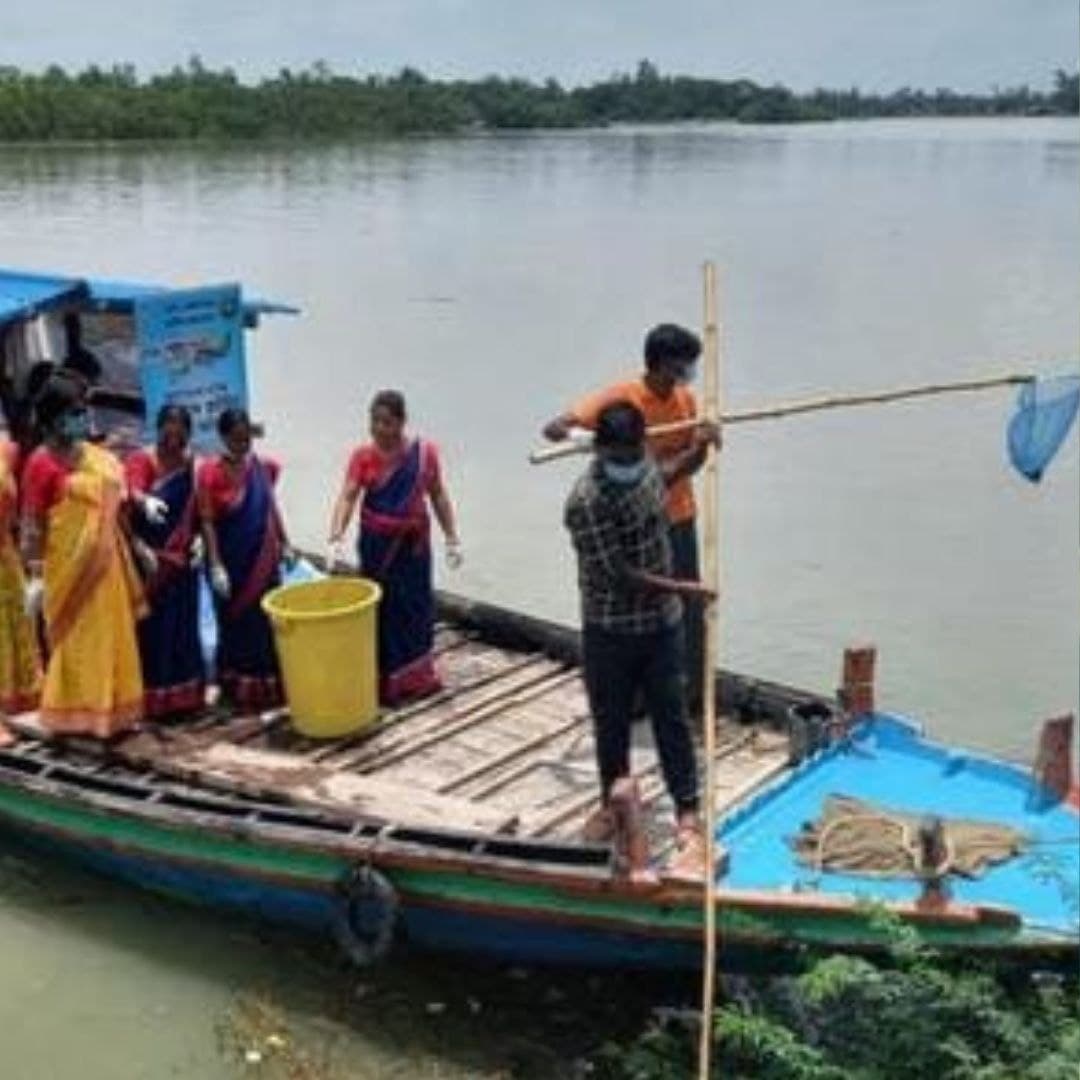
Image Credit: Hindustan Times
Now, Plastic Waste Is The New Income Source For Villagers In Sunderbans
Writer: Madhusree Goswami
A mountain girl trying to make it big in the city. She loves to travel and explore and hence keen on doing on-ground stories. Giving the crux of the matter through her editing skills is her way to pay back the journalism its due credit.
West Bengal, 16 Aug 2021 1:07 PM GMT
Editor : Ankita Singh |
A literature lover who likes delving deeper into a wide range of societal issues and expresses her opinions about the same. Keeps looking for best-read recommendations while enjoying her coffee and tea.
Creatives : Madhusree Goswami
A mountain girl trying to make it big in the city. She loves to travel and explore and hence keen on doing on-ground stories. Giving the crux of the matter through her editing skills is her way to pay back the journalism its due credit.
In the aftermath of Cyclone Amphan and Yaas, plastic waste from relief material began piling up on the island. On June 5, the West Bengal government come up with a project to help the local rural society through a programme that aims to stop dumping of plastic in land and water.
After being battered by Cyclone Amphan and Cyclone Yaas, the Sunderbans has been receiving unregulated inflow of relief material. As a result, a new crisis has gripped the island— plastic waste. Several NGOs, experts, and even officials of the District Police and the Forest Department, have pointed out that the plastic accumulating in the islands of the fragile ecosystem are a cause of worry.
"What we are seeing is tonnes of plastic in the remote areas of the Sundarban, like Gosaba, Mousuni, Bali, Patharpratima and Kultali. People residing in these areas are not responsible in any way for the huge plastic waste; it is outsiders who are introducing and bringing a large number of plastics, completely oblivious and ignorant to its long-term impact on the region," said ecologist Diya Banerjee.
How Much Of Waste Has Been Accumulated?
And exactly how much of waste has been accumulated? Banerjee said that Mahajibon, a local NGO had recovered about 300 kg of plastic waste from the Gosaba block alone days after cyclone Yaas.
On June 5 (World Environment Day), the West Bengal government come up with a project to help the local rural society through a programme that aims to stop dumping of plastic in land and water. The government's decision to provide monetary incentives to villagers for collecting and returning plastic waste has led to mass involvement as well as the creation of self-help groups for women.
The dumping of plastic by villagers and thousands of tourists visiting the Sunderbans have also threatened the ecology of the island in recent years.
A large number of local people as well as over 50 NGOs have joined the programme. "We are offering ₹100 for one sack of plastic. The nine islands in Gosaba cover an area of 2,500 square km, of which 285 square km have human habitations. So far, we have collected more than 11 metric tonnes of plastic," said Saurabh Mitra, the community block development officer of Gosaba.
K akali Ghosh Kundu, the officer-in-charge of Baruipur women's police station who came up with the idea of buying back the plastic, said that appeals for donation to ruin the project have received a good response. She mentioned a specific instance where a small boy donated all his savings from a piggy bank.
Perils Of Plastic Pollution
Tuhin Ghosh, director of the School of Oceanographic Studies, Jadavpur University, pointed out that the presence of plastic in saline water will increase the toxicity of water gradually and also there will be eutrophication of water. Because of the presence of plastics in the water, there will be an increase in microplastics, which will slowly enter the food system.
Experts have said that the Sunderbans is largely dependent on fisheries and aquaculture, and any change in the delicate ecosystem can not only destroy the ecology but also snatch away livelihoods.
Also Read: Safety First! Nashik Launches 'No Helmet, No Petrol' Drive To Curb Road Accidents
 All section
All section














